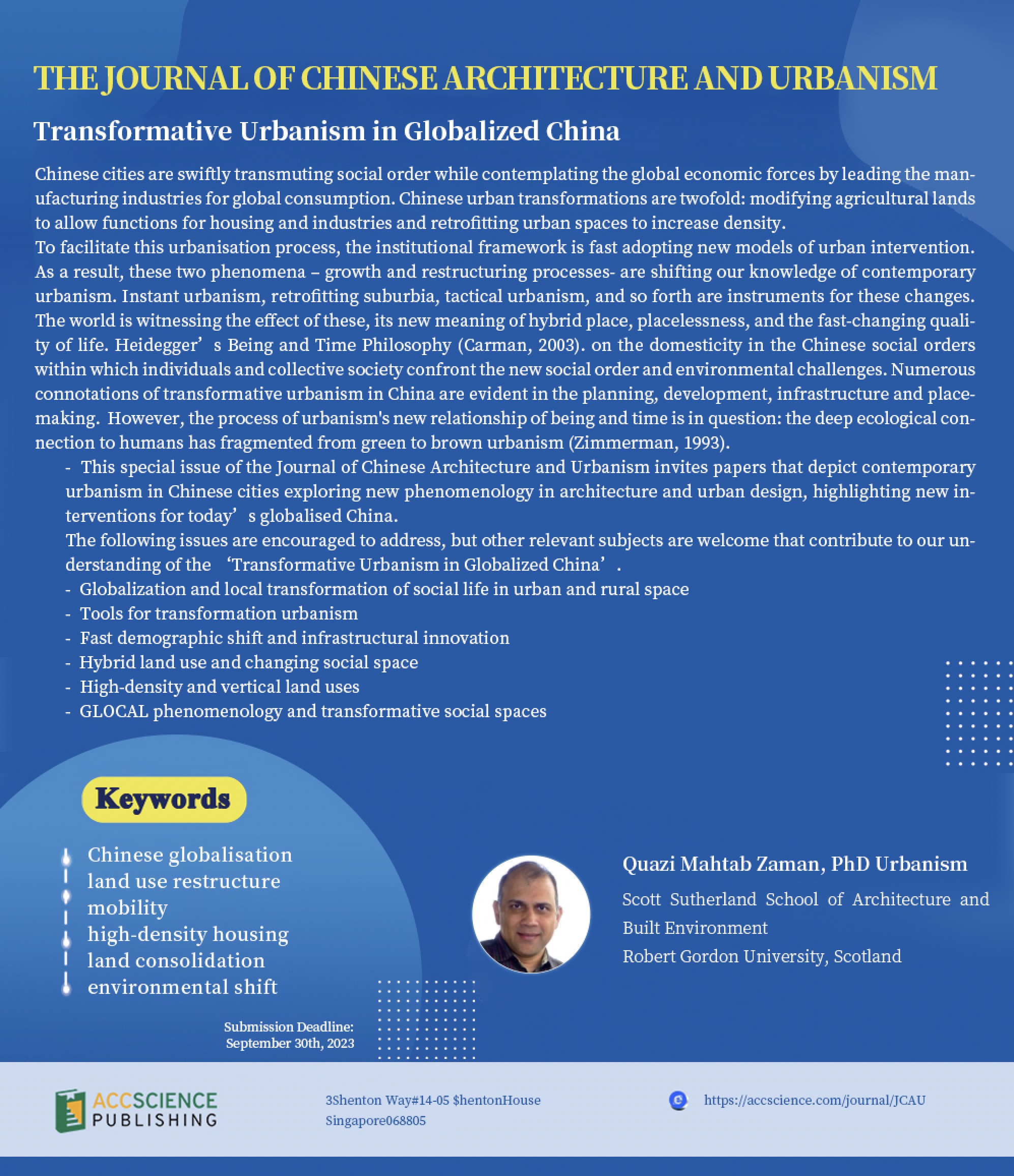
Chinese cities are swiftly transmuting social order while contemplating the global economic forces by leading the manufacturing industries for global consumption. Chinese urban transformations are twofold: modifying agricultural lands to allow functions for housing and industries and retrofitting urban spaces to increase density.
To facilitate this urbanisation process, the institutional framework is fast adopting new models of urban intervention. As a result, these two phenomena – growth and restructuring processes- are shifting our knowledge of contemporary urbanism. Instant urbanism, retrofitting suburbia, tactical urbanism, and so forth are instruments for these changes. The world is witnessing the effect of these, its new meaning of hybrid place, placelessness, and the fast-changing quality of life. Heidegger’s Being and Time Philosophy (Carman, 2003). on the domesticity in the Chinese social orders within which individuals and collective society confront the new social order and environmental challenges. Numerous connotations of transformative urbanism in China are evident in the planning, development, infrastructure and placemaking. However, the process of urbanism's new relationship of being and time is in question: the deep ecological connection to humans has fragmented from green to brown urbanism (Zimmerman, 1993).
- This special issue of the Journal of Chinese Architecture and Urbanism invites papers that depict contemporary urbanism in Chinese cities exploring new phenomenology in architecture and urban design, highlighting new interventions for today’s globalised China.
The following issues are encouraged to address, but other relevant subjects are welcome that contribute to our understanding of the ‘Transformative Urbanism in Globalized China’.
- Globalization and local transformation of social life in urban and rural space
- Tools for transformation urbanism
- Fast demographic shift and infrastructural innovation
- Hybrid land use and changing social space
- High-density and vertical land uses
- GLOCAL phenomenology and transformative social spaces
References:
Zimmerman, “Rethinking the Heidegger--Deep Ecology Relationship,” Environmental Ethics, Vol. 15, No. 3 (Fall, 1993), 195-224, and Contesting Earth's Future: Radical Ecology and Postmodernity Berkeley and Los Angeles: University of California Press.
Carman T (2003). Heidegger's Analytic Interpretation, Discourse and Authenticity in Being and Time, UK: Cambridge University Press.


